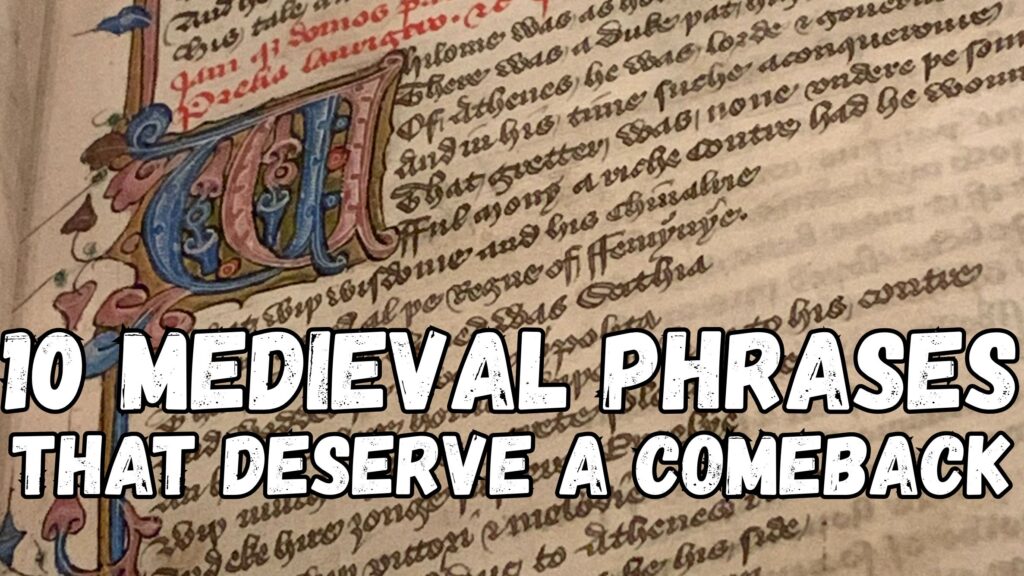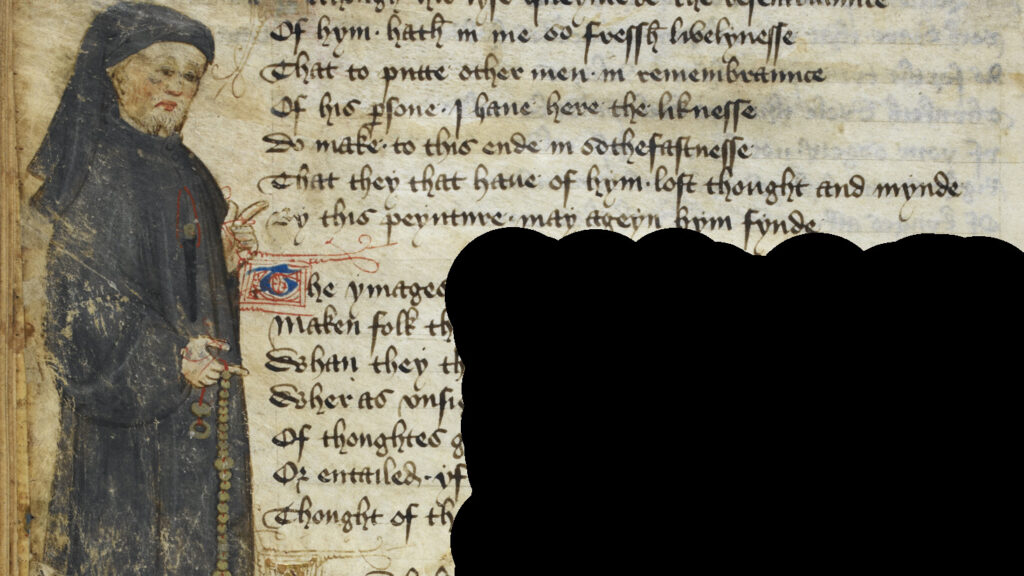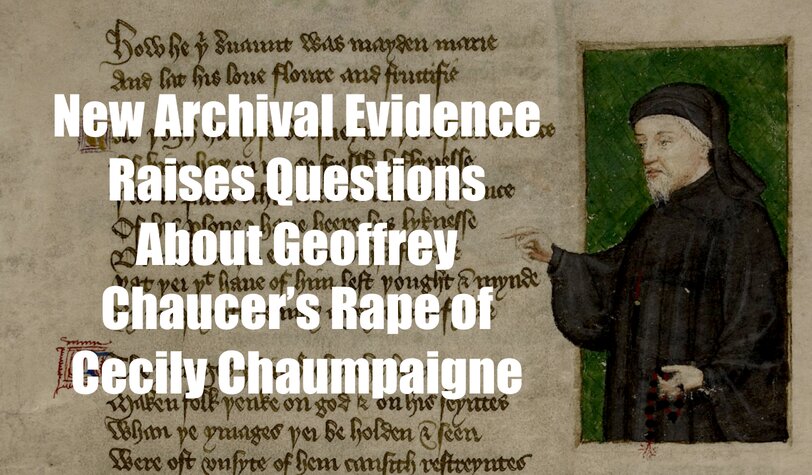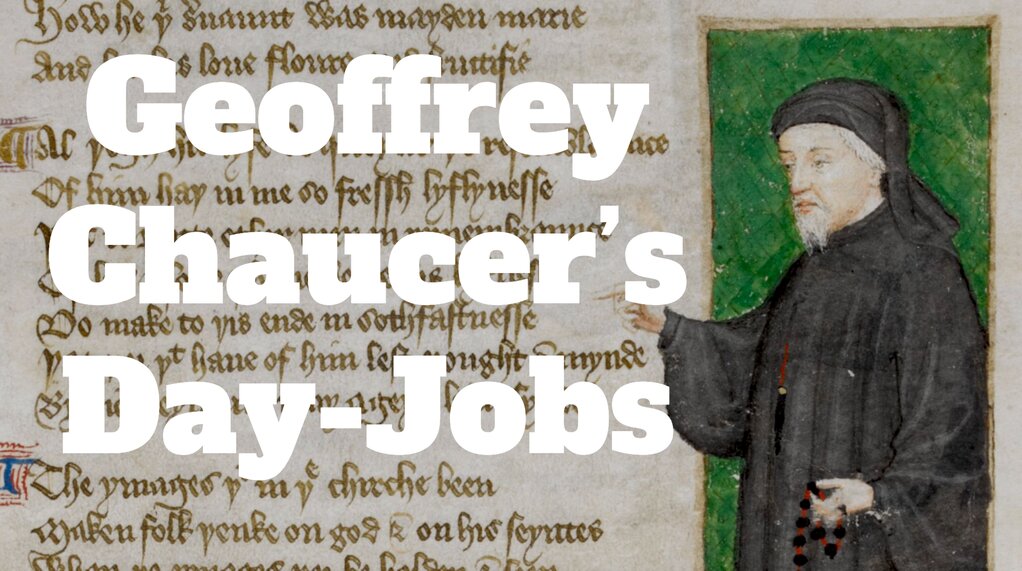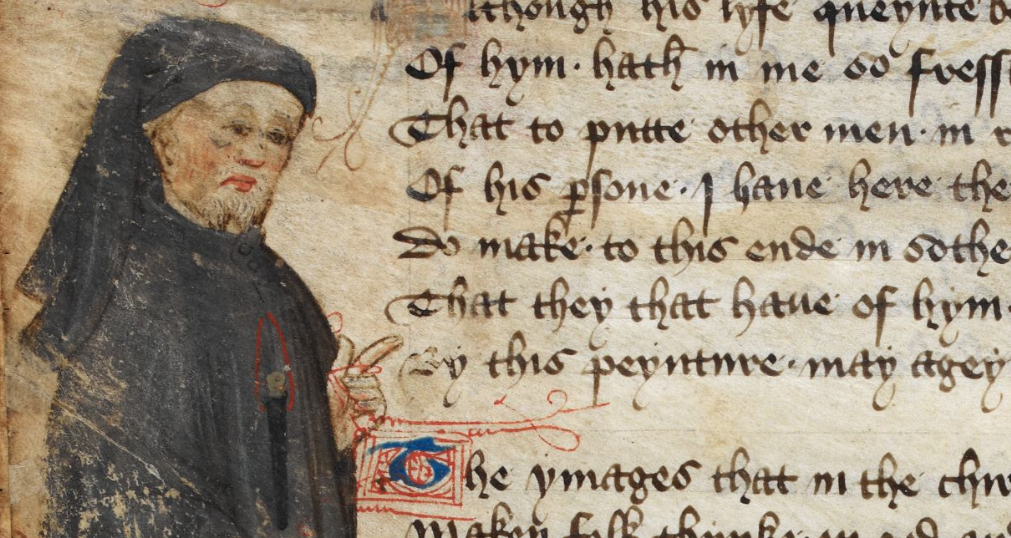Ten Medieval Phrases That Deserve a Comeback
Discover ten forgotten phrases from the Middle Ages — from English oaths to Arabic blessings — that once shaped medieval life and still deserve a comeback today.
Chaucer’s Wade Uncovered: A Medieval Romance, Not a Monster Tale
Scholars have solved a 130-year-old medieval literary mystery, revealing that the lost Song of Wade—referenced by Chaucer—was a chivalric romance, not a monster tale.
Third Reich Medievalists: National Psychology and the Study of Chaucer
Exploring how Chaucer studies were shaped by Nazi ideology, this article uncovers the influence of national psychology and propaganda on medieval scholarship in the Third Reich.
The Chaucerian: How a German school teacher became the world’s most prolific Chaucer scholar, and then was promptly forgotten
In the shadow of Bismarck’s empire, one dedicated teacher quietly built a staggering body of scholarship on Geoffrey Chaucer—without a university post, a research grant, or a single PhD student. His name once filled the footnotes of English literature. So why don’t we remember him?
Bad Chaucer with Tison Pugh – The Medieval Podcast, Episode 264
When it comes to classics of literature, it can feel like there’s a lot of pressure to nod along with the crowd and say that some authors are just brilliant, full stop. But sometimes even great literature isn’t so great. This week on The Medieval Podcast, Danièle speaks with Tison Pugh about the good, the bad, and the downright ugly in Geoffrey Chaucer’s The Canterbury Tales.
Translatio Scientiae: Chaucer, the Astrolabe, and Making English Scientific
I examine how Chaucer’s vocabularies—whether translated or adopted—offer new possibilities for using English as a language for scientific knowledge and for articulating and even creating new communities of scientific readers and practitioners.
New Medieval Books: Bad Chaucer
One of the famous works of the Middle Ages is scrutinized for its errors, missed opportunities, and not-so-great poetry.
35 Medieval Expressions Invented by Chaucer: Phrases That Shaped Modern English
We explore 35 medieval phrases invented by Chaucer, including many that are still used today.
Holidaying in the Middle Ages
Have you wanted to escape into the medieval past?
New Medieval Books: Chaucer Here and Now
A collection of eight articles that traces how the English writer Geoffrey Chaucer has been interpreted and reimagined over the centuries. Works like The Canterbury Tales have inspired many people and led to much new media being created.
Chaucer Here and Now opens at the Bodleian
Chaucer Here and Now has now opened at the Bodleian Libraries. The new exhibition explores the lasting influence of Geoffrey Chaucer, author of The Canterbury Tales, and charts how this unconventional medieval poet came to be known as the ‘Father of English Literature.’
Pilgrimages, Pandemics and the Past
Tom Holland will draw on experiences of reading Chaucer and undertaking pilgrimages during and after the pandemic.
British Library digitizes its entire Chaucer manuscript collection
The British Library has made available online its entire collection of manuscripts related to Geoffrey Chaucer. Users can now freely access over 60 items, which include many versions of The Canterbury Tales.
The Five Faces of Chaucer
It is always hard to know what a person looked like if they lived in the Middle Ages. This is true for even…
The Wife of Bath with Marion Turner
Unfiltered, opinionated, and joyful, the Wife of Bath stands out from Chaucer’s Canterbury crowd, interjecting, interrupting, and endearing herself to readers for over six centuries. This week on The Medieval Podcast, Danièle speaks with Marion Turner about the literary life and legacy of this unforgettable character.
New Archival Evidence Raises Questions About Geoffrey Chaucer’s Rape of Cecily Chaumpaigne
Tuesday, October 10th was a momentous day in the field of Chaucer studies.
Geoffrey Chaucer’s Day-Jobs
Geoffrey Chaucer is one of the most famous poets of the Middle Ages, but like many struggling writers today, he held several day-jobs. Here are some of the many jobs that Chaucer had over the course of his life.
The Canterbury Tales – The App
Fans of Geoffrey Chaucer’s The Canterbury Tales can now access the medieval work through a new mobile app. It is the first major literary work augmented by new scholarship, in any language, to be presented in an app.
Censorship and Intolerance in Medieval England
This dissertation proposes that the roots of formal print censorship in England are to be found in earlier forms of intolerance which sought to enforce conformity and that censorship is not distinct from intolerance, but rather is another form of intolerance.
Horror and Violence in The Canterbury Tales
A large amount of brutality, subjugation, and death can be be found within the most famous literary work of the Late Middle Ages, Geoffrey Chaucer’s The Canterbury Tales.
The Cooks of the Canterbury Tales: The Backstage of Bourgeois Social Drama
This article aims at analysing Chaucer’s depiction of the cooks in the Canterbury Tales, and to discuss their function in contributing to the social changes as figures at the backstage of bourgeois social drama.
Chaucer’s Periodization
This lecture explores how Chaucer and his contemporaries saw their own place in time
Which Chaucer Character are You?
Are you one of the members of the Canterbury Tales, or perhaps the famous author himself? Answer these questions to find out!
Chaucer or Shakespeare?
18 quotes (modernised) – some of which are Geoffrey Chaucer’s and some of which are William Shakespeare’s. Which one was penned by which great writer?
Drinking Sorrow and Bathing in Bliss: Liquid Emotions in Chaucer
This paper explores the different uses of liquidity to represent emotions in Chaucer’s writing, and especially in Troilus and Criseyde
